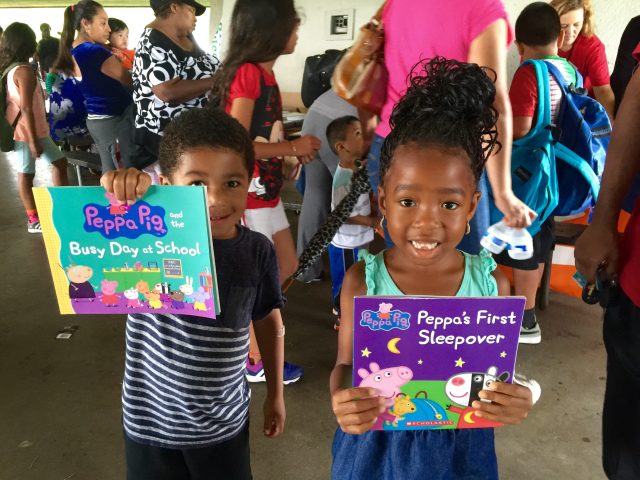
I start every school year with the first day jitters. Some things will never change—but in MMSD, much has.
First and foremost, the trajectory is changing. Our progress over the past few years has been strong in our areas of focus and showing stronger results in schools receiving the most intensive support:
- Double digit gains in foundational reading skills in just one year and 3rd grade reading proficiency in two years for African American students and even bigger gains at some schools, like Falk, Allis, Hawthorne, and Mendota.
- Accelerated results in the graduation rate for African American students (up 5 points in 2 years to 59% graduating) and in 2 of our 4 high schools we have made double digit jumps—74% of African American students are now graduating at Memorial and 80% at La Follette.
- Positive strides with diversity hiring. We are still in our hiring season, but we’ve already hired nearly 60 new teachers of color, which is significantly more than what we have done in the past. That is building on successful diversity efforts within our central office and principal team.
Is it enough? Never. Do we all demand more? Yes. But I firmly believe we’ve built the foundation necessary for even bolder moves and stronger results in the future. Instead of just talking about gaps in achievement, we are taking them head on because we know that much is in our power to change the trajectory for students. Our charge is to ensure our students’ achievement matches their amazing potential.

We are also changing the way we work. While we are making significant programmatic changes, results for children don’t ultimately improve because of “initiatives.” They improve when we fundamentally change the way we do our daily work. For three years now, we’ve been intentionally building out the systems and structures necessary to make better decisions.
We started with examining and changing the way we make school-wide decisions, then teacher team decisions, and then teacher decisions, and now how we make decisions with families. Our objective is to get better visibility into strengths and challenges, test our assumptions, weigh options and ultimately make better and more precise decisions on behalf of children every single day.
This year, our major focus will be on working in partnership with families. Every school will now have a Family and Community Engagement Action Team to inform how decisions get made at the school level. Every school will be strengthening its two-way communication and partnership with families. Every school is finding ways to link their interactions with families directly to our common goals for student learning.
We recently interviewed a diverse panel of parents about what it means to partner with them in a room of 250 educators at our opening leadership institute. They shared with us the hopes and dreams they have for their children—to have great careers, to have better lives, to be bilingual and bicultural, to use their gifts, and to be valued in this world. They told us about the capacity they have to support their children, even in tough times, to realize these hopes and dreams. They requested our guidance as professionals in support of their children’s healthy development. And they asked us not to limit any single child’s possibilities.

As our students enter their school doors this year, I’m asking that we also demand a change in the narrative about our students.
It was recently suggested to me that I shouldn’t highlight what is working and changing for the better in our annual report because it isn’t yet changing for everyone.
While I am deeply and keenly aware of this reality, I believe it is my obligation to present a counter-narrative to what we see in our community and in our country. In a community that is constantly referencing the “achievement gap” as some immoveable condition, I want to challenge us all not to define students of color or students whose families are living in poverty as innately under-performing, as struggling, or as somehow deficient.
We have a vision for our students– created through discussions with our parents, students, staff and community—that every child will not only master academic content, but the interpersonal skills, the creativity, the self-awareness, the cultural competence and the confidence to achieve their hopes and dreams. I see this vision as being achievable because I see it in every child.
My own son is in the picture at the beginning of this article holding a book that he has already read over a dozen times this week. I worry that he’ll be defined by “the gap” when all I can see in him, like every parent, is his exhilarating potential. I want and need for us all to have a proleptic view of our students—let’s see them for who they are AND who they are becoming. If we don’t, we limit their possibilities before they’ve even begun.
Ari Davis, a recent MMSD graduate, college student and aspiring educator, spoke to our school leaders to kick off the school year and inspired us all with his success story. He stated, “The Madison Metropolitan School District first nourished me as a student, giving me the knowledge and support I needed to grow as a student and a person in the early stages of my life. Then the Madison Metropolitan School District gave me the foundation for my future career to grow from. MMSD turned my dreams into goals that I now can view as a possible reality.” Ari’s is a story of high expectations, academic press, and opportunity.
It’s the story we want for every child.



























